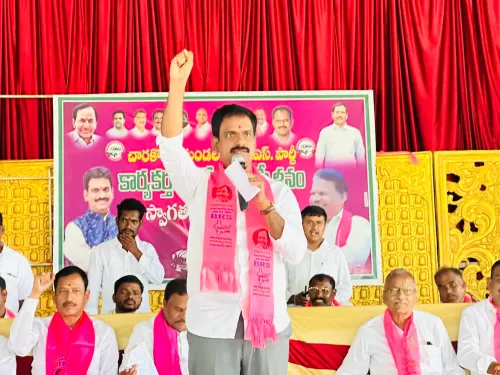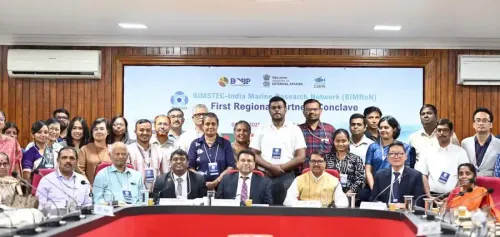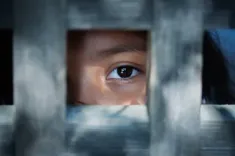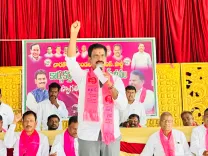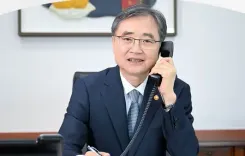Why Has a Category Beyond Law Achieved Immunity? VP Dhankhar Questions Judges' Cash Case
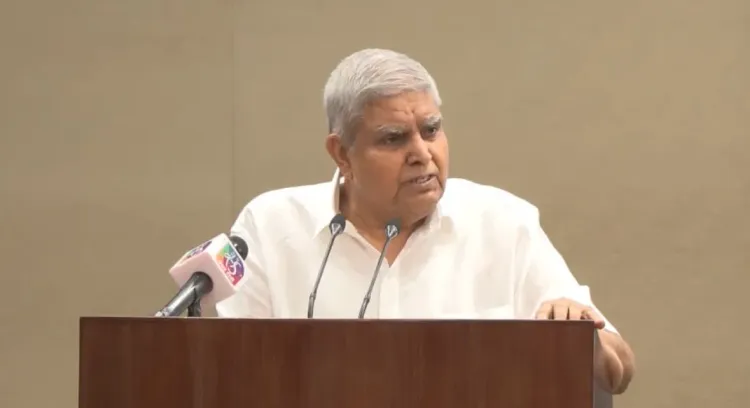
Synopsis
Key Takeaways
- VP Dhankhar questions the immunity of judges.
- Calls for transparency regarding the cash discovery.
- Stresses the importance of an FIR in investigations.
- Emphasizes separation of powers among the judiciary, executive, and legislature.
- Urges examination of the committee's legal authority.
New Delhi, April 17 (NationPress) Vice President Jagdeep Dhankhar on Thursday conveyed his concern regarding the recent developments surrounding the discovery of a significant sum of cash purportedly at the residence of a High Court judge in Delhi. He challenged the constitutional legitimacy of the commission established by the Supreme Court to investigate the matter, asserting that the Constitution grants immunity from prosecution solely to the President and Governors, leaving no room for any other category.
“It has now been over a month. Even if it is a can of worms. Even if there are skeletons in the cupboard, it is time to expose the can. Time for its lid to be removed. And time for the cupboard to collapse. Let the worms and skeletons be in the public domain so that a cleansing can occur,” he remarked about the incident where burnt currency notes were allegedly discovered at a Delhi High Court judge's residence last month.
Dhankhar made these statements while addressing the 6th batch of Rajya Sabha interns at the Vice-President’s Enclave.
He mentioned, “Let me refer to the most recent incidents. They are capturing our attention. An event transpired on the night of March 14th and 15th in New Delhi, at a judge's residence. For seven days, it remained unknown. We must ask ourselves: Is the delay justifiable? Acceptable? Doesn’t it raise fundamental questions? In any typical circumstance, which defines the rule of law, things would have unfolded differently. It was only on March 21st, revealed by a newspaper, that the public was left in shock at this alarming exposé.
“Fortunately, we subsequently received input from an authoritative source, the Supreme Court of India. This input indicated culpability. There was no doubt that something was amiss and required investigation. Now the nation is on edge. The nation is restless because one of our institutions, which has always commanded the highest respect, is now under scrutiny,” he expressed.
The Vice President stated, “In a democratic country, the integrity of its criminal justice system shapes its trajectory. Investigation is essential. Students, there is currently no investigation under law in progress. For a criminal investigation to commence, an FIR, or First Information Report, is required. It is absent. According to the law, every cognizable offence must be reported to the police, and the failure to report such an offence is a crime; thus, you might be wondering why no FIR has been lodged. The answer is straightforward.”
“An FIR can be filed against anyone in this country, including any constitutional functionary, just like the one before you. It merely requires the activation of the rule of law. No authorization is necessary. However, when it pertains to judges, an FIR cannot be filed immediately. It must be sanctioned by the relevant judicial authority, which is not stipulated in the Constitution. The Constitution of India has granted immunity from prosecution solely to the Honourable President and Honourable Governors. So how has a category beyond the law secured this immunity?” asked the Vice President.
“The adverse effects of this situation are being felt nationwide. Every Indian, young and old, is profoundly concerned. If this incident had occurred at their home, the response would have been as swift as lightning. Instead, it has been sluggish,” he added.
He continued, “There exists a committee of three judges examining the issue; however, investigation falls within the executive's domain, not the judiciary's. Does this committee derive its authority from the Constitution of India? No. Does this committee of three judges possess any legal sanction from Parliament? No. And what can this committee accomplish? At best, it can make a recommendation. A recommendation to whom? And for what purpose? The framework we have for judges stipulates that only Parliament can take action, particularly in initiating removal proceedings.”
“A month has elapsed, more than that, and investigations necessitate speed, urgency, and the preservation of incriminating evidence. As a citizen and in my official capacity, I am troubled. Are we not undermining the rule of law? Are we not accountable to 'We the people' who bestowed upon us the Constitution? Hence, I strongly urge all involved to regard this as a test case,” said Dhankhar.
“What legitimacy and jurisdictional authority does this committee possess? Can we create a separate law for a specific category that exists outside the Constitution and Parliament?” the VP inquired.
“In my view, the committee's report inherently lacks legal validity,” he stated.
“According to the principle of separation of powers,” he noted, “...when the executive, elected by the populace, is accountable to Parliament; the government is accountable to the people during elections. There exists a principle of accountability in effect. In Parliament, one can pose questions, including critical inquiries, because governance is conducted by the executive. But if governance is executed by the judiciary, how can one pose questions? Whom do you hold accountable during elections?”
“The time has come for our three institutions, the legislature, judiciary, and executive, to thrive. They flourish best, and for the nation, only when they function within their designated spheres. Any encroachment by one into the domain of the other presents challenges, which is detrimental,” the Vice President concluded.


